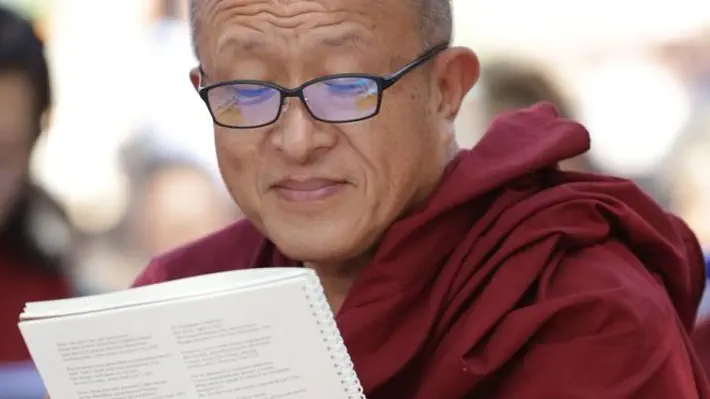Books recommended by Dzongsar Khyentse Rinpoche

I also have a list of Recommended Books on Buddhism and a more general (and personal) book recommendation page.
If you happen to know of recommendations made by Dzongsar Khyentse Rinpoche, either of books, songs or movies, please collaborate and send me the appropriate references to padma.dorje@gmail.com.
All the links go the US amazon store, with any purchase you are helping this website. If you are in Brazil, please use the amazon.com.br links at the portuguese version of this page.
Fiction
Haruki Murakami
Norwegian Wood
Haruki Murakami
1q84 (book 1)
Soseki Natsume
Kokoro
Yasunari Kawabata
Snow Country
Mian Mian
Candy1“What an Amazing book. Every Buddhist teacher (specially Chinese Mahayana/Zen teachers) who wishes to propagate the dharma in the current time and environment should read this.” DJKR on Facebook.
Aldous Huxley
Brave New World
Isabel Allende
The House of Spirits (português brasileiro)
Gabriel García Márquez2The book was mentioned, but Rinpoche may not have finished it.
Cem Anos de Solidão (português brasileiro)
Emily Bronte3The book was mentioned, but Rinpoche may not have finished it.
O Morro dos Ventos Uivantes
Oscar Wilde
O Retrato de Dorian Gray (português brasileiro)
Religion
Anthony Storr
Feet of Clay - A study of gurus
Sam Harris
The End of Faith
Politics and economy
Ronald Colman
What Really Counts – The Case for a Sustainable and Equitable Economy
Edward S. Herman, Noam Chomsky
Manufacturing Consent: The Political Economy of the Mass Media
Joe Bageant
Deer Hunting with Jesus: Dispatches from America's Class War, Joe Bageant
Rajiv Malhotra
Being Different: An Different Challenge To Western Universalism
Tom Holland
Dominion: How the Christian Revolution Remade the World
Philosophy
Sarvepalli Radhakrishnan
A Sourcebook in Indian Philosophy
Aknowledgement to Mariel Hespanhol, who has sent me further references of books and movies she got while listening to Rinpoche’s teachings. A book reference was sent by William de Santa. This page is not affiliated to Dzongsar Khyentse Rinpoche and his organizations, for more information about this great teacher, check Siddharta's Intent.
1. ^ “What an Amazing book. Every Buddhist teacher (specially Chinese Mahayana/Zen teachers) who wishes to propagate the dharma in the current time and environment should read this.” DJKR on Facebook.
2. ^ The book was mentioned, but Rinpoche may not have finished it.
3. ^ The book was mentioned, but Rinpoche may not have finished it.

Grupo de Whatasapp (apenas anúncios)
todo conteúdo, design e programação por Eduardo Pinheiro, 2003-2024
(exceto onde esteja explicitamente indicado de outra forma)






